Design garden: An artistic garden in Oxfordshire
Using carefully chosen words and symbols, the artist-gardener has made an outdoor space in Oxfordshire that is a place of provocation as well as repose.

Design expertise in your inbox – from inspiring decorating ideas and beautiful celebrity homes to practical gardening advice and shopping round-ups.
You are now subscribed
Your newsletter sign-up was successful
Want to add more newsletters?

Twice a week
Homes&Gardens
The ultimate interior design resource from the world's leading experts - discover inspiring decorating ideas, color scheming know-how, garden inspiration and shopping expertise.

Once a week
In The Loop from Next In Design
Members of the Next in Design Circle will receive In the Loop, our weekly email filled with trade news, names to know and spotlight moments. Together we’re building a brighter design future.

Twice a week
Cucina
Whether you’re passionate about hosting exquisite dinners, experimenting with culinary trends, or perfecting your kitchen's design with timeless elegance and innovative functionality, this newsletter is here to inspire
‘You won’t to be too reserved when writing about the garden, I hope,’ the artist-gardener says to me. The witty space certainly invites exploration and surprise rather than restrained politeness, as encapsulated by two galvanised watering cans, their spouts resembling a pair of exultant trumpets or the barrels of shotguns pointing towards the visitor, with the words ‘This is not an attack’ embossed on a lead panel set in the brick plinth beneath.
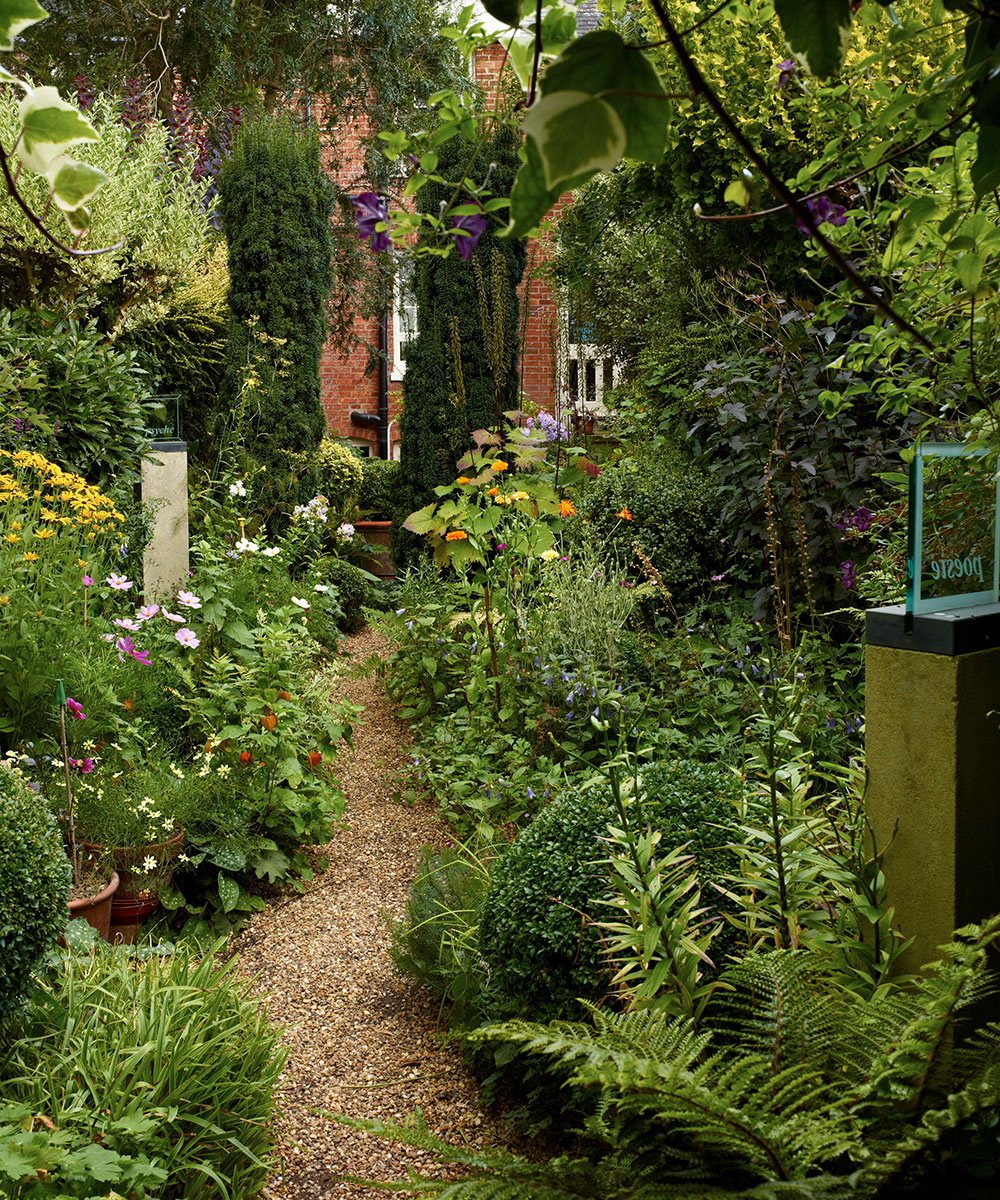
The gardener has been painting and thinking about gardens for most of her life, culminating in this place, where each word, symbol and arrangement of objects is laden with meaning. Of her many influences, it is the late poet and gardener Ian Hamilton Finlay and Little Sparta, his garden in the Pentland Hills in Scotland, that has shown her that gardens can be places of provocation as well as repose.
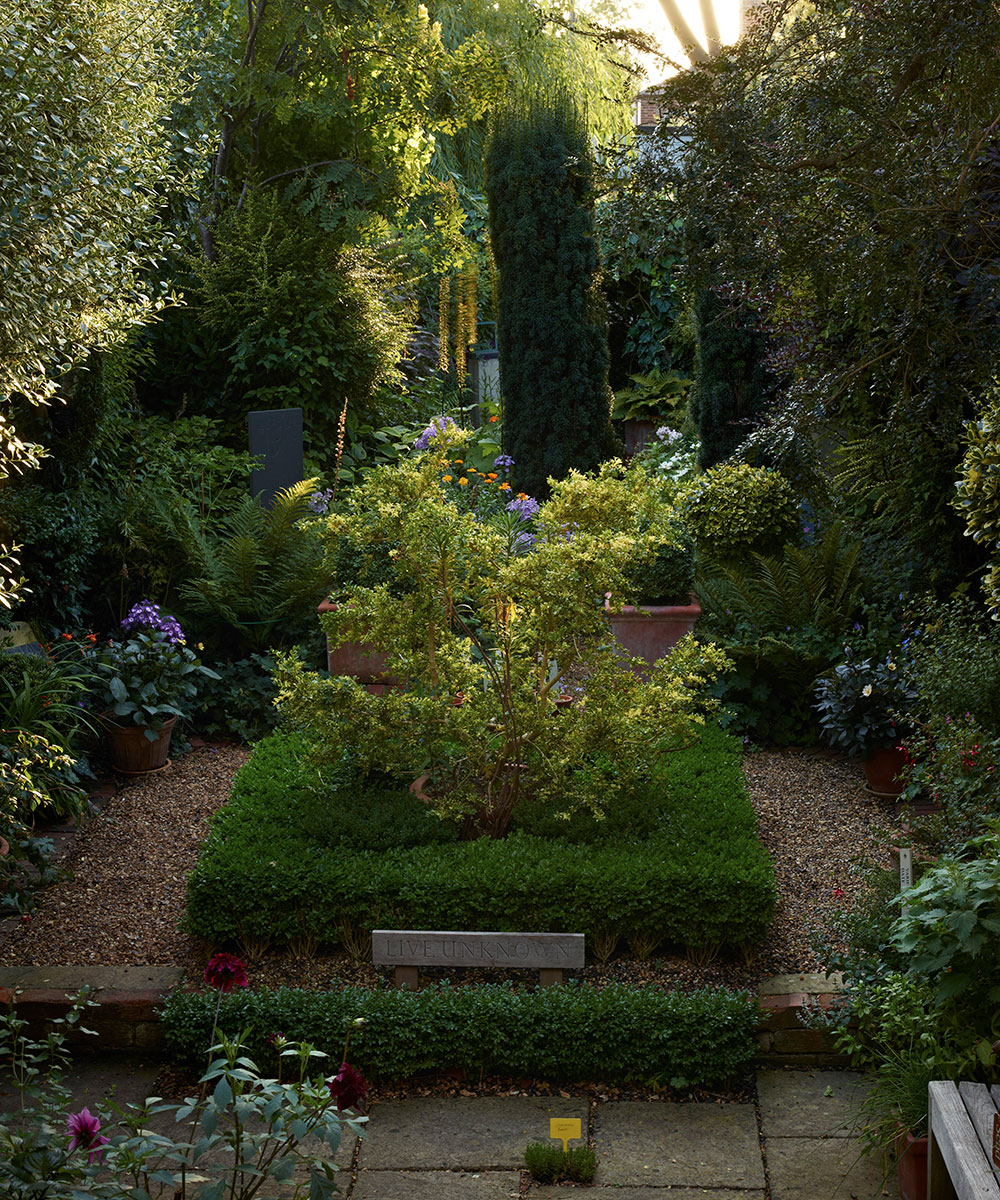
She began her garden, near Oxford, in the early 1980s, when it had ‘nothing to inspire or save’, but, over time, this blank canvas prompted ideas of space and form. Today, fences clothed in ivy have become vertical lawns, a tiny tuft of green between stone slabs has a sign that reads ‘Chamomile Lawn’, and the word ‘lawn’ is sandblasted onto glass and attached to the gate; all playful takes on this common garden element.
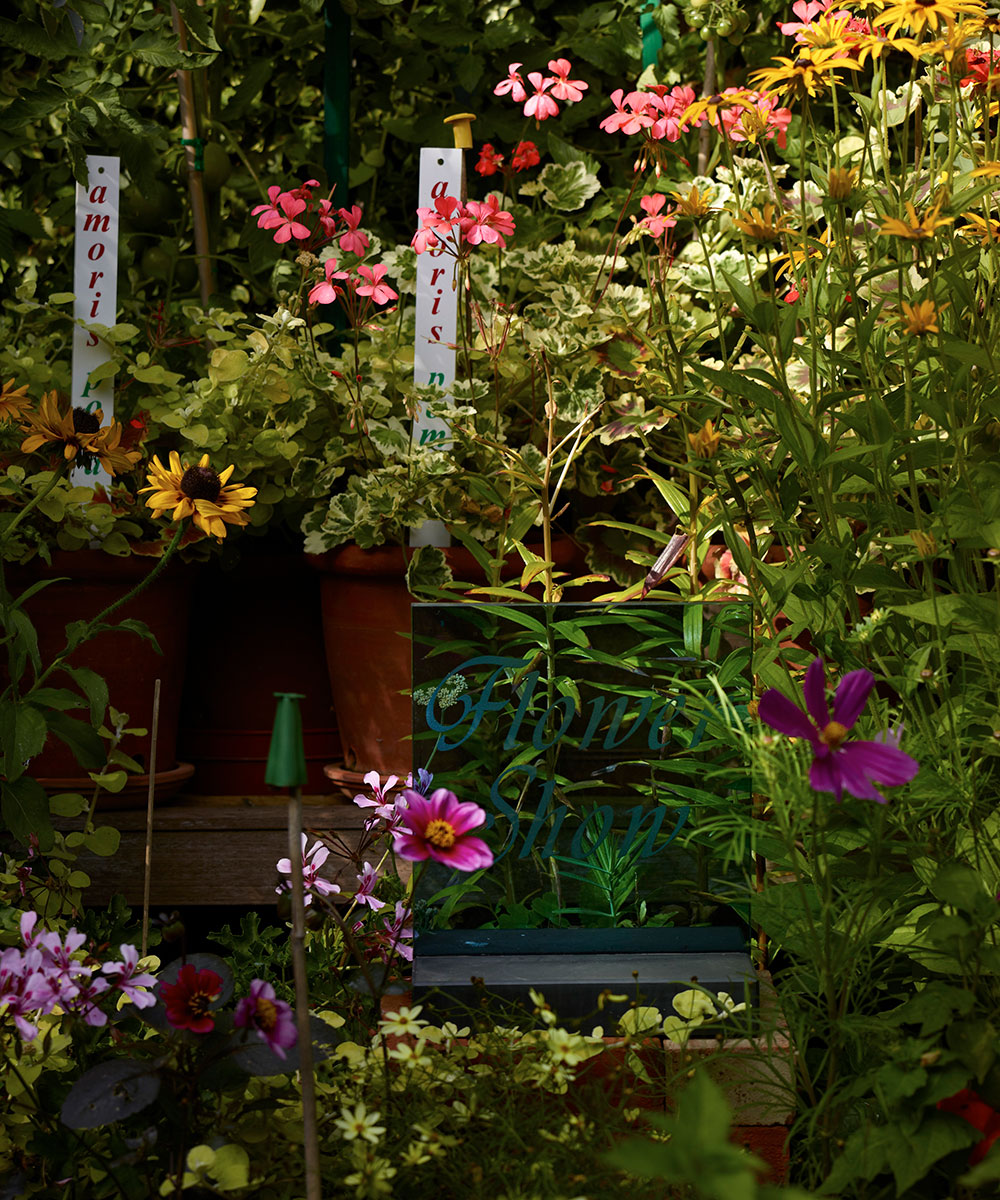
A winding path changes our perception of the garden’s dimensions, making it appear larger than it is, with the apposite Latin inscription, ‘Ambulando solvitur?’ (‘It is solved by walking?’) upon a stone plinth.
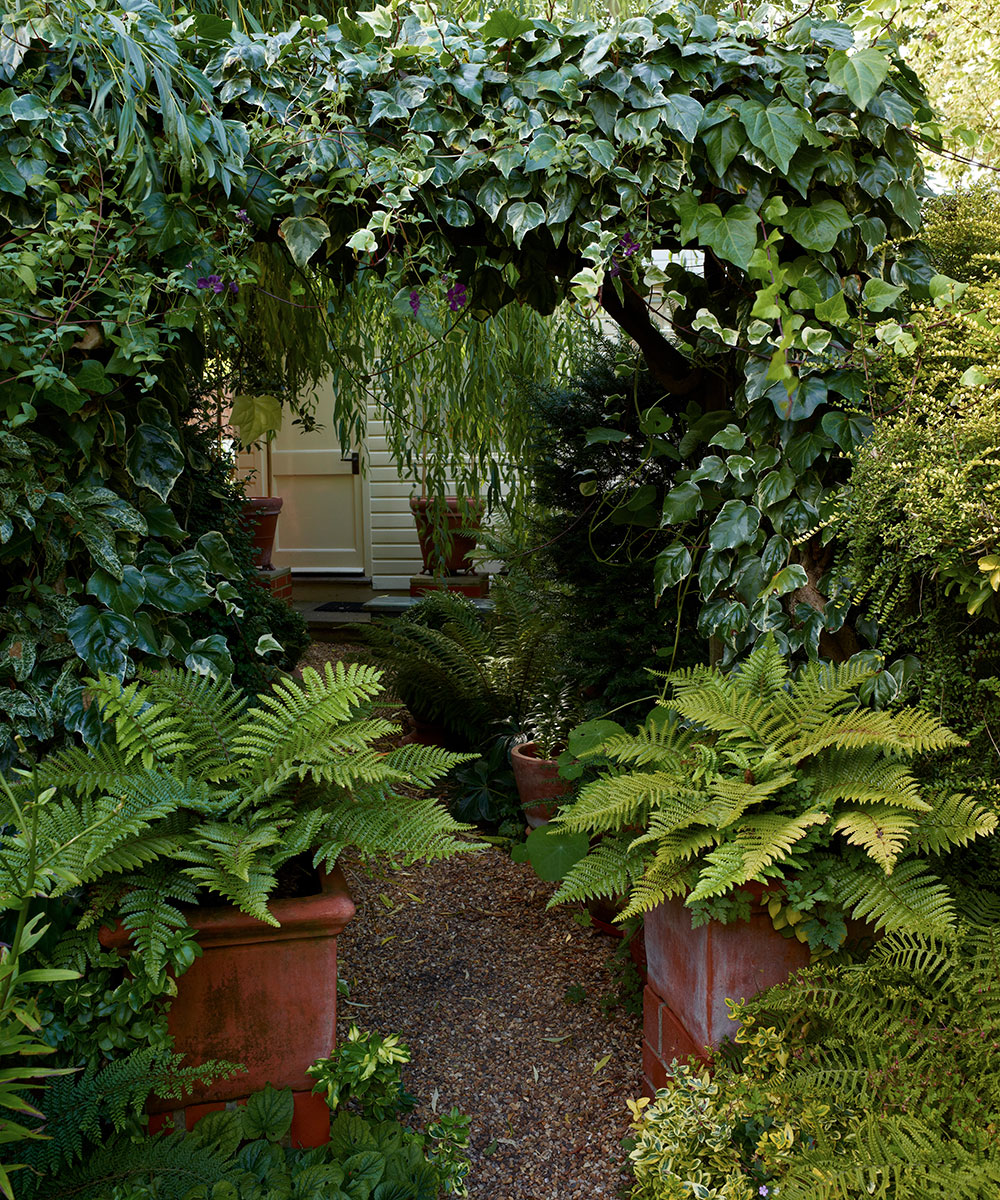
Numerous visits to Italian gardens such as Villa La Pietra outside Florence, the garden of the late painter and art collector Arthur Acton, encouraged her to pay close attention to the way that works of art are placed within a green space. However, the fascination with words and the ideas they provoke came from her 16-year-long artistic association with Little Sparta. Her response has been to carve isolated words into materials such as stone, wood and glass. Some words have multiple meanings, some morph into others; for example, the word ‘hearth’, placed at the garden’s centre, evokes hear, heart, earth, art.
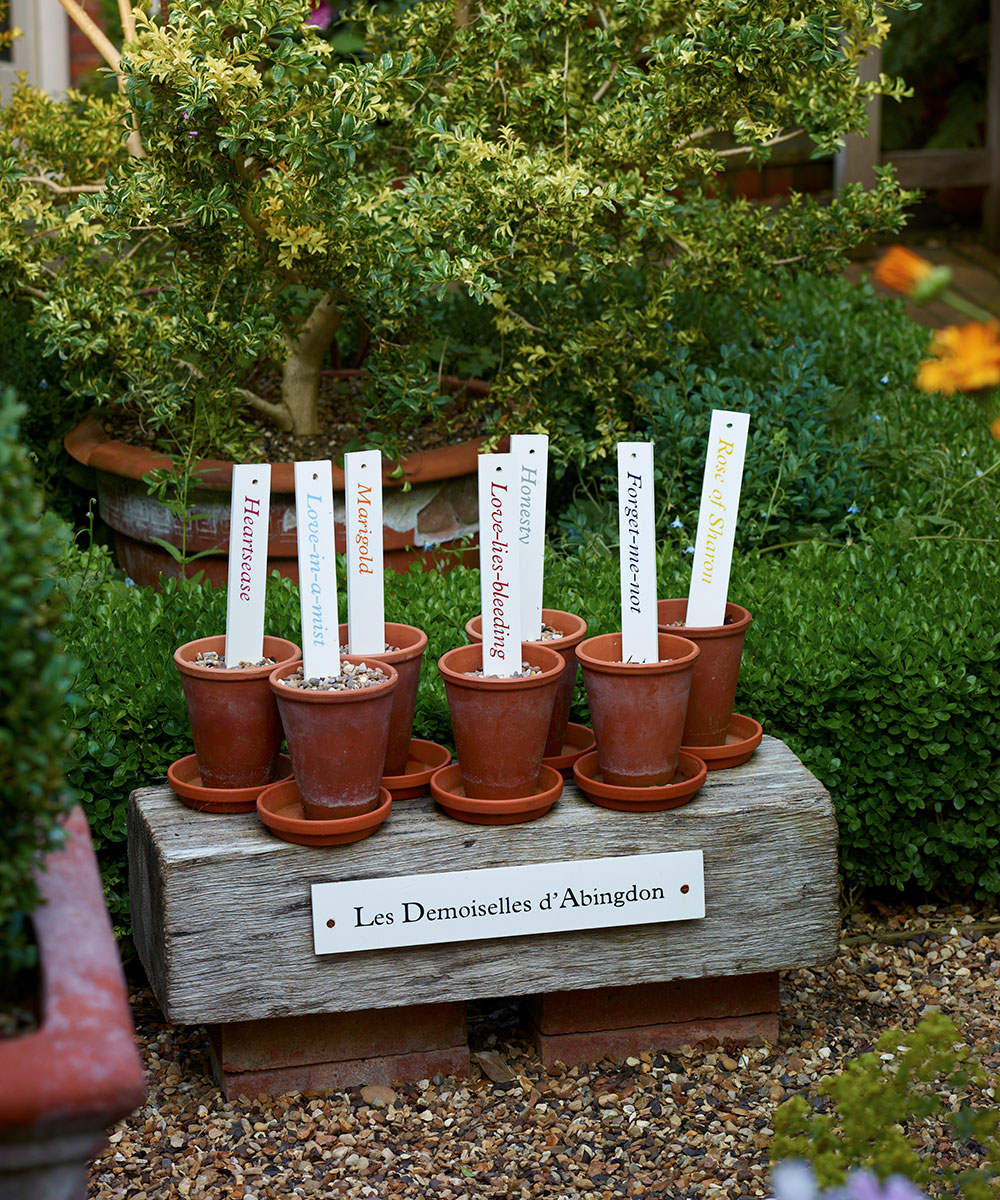
The influence of Little Sparta is acknowledged in a seeming jumble of letters and numbers carved out of oak; it is, in fact, the postcode of Ian Hamilton Finlay’s garden: ML11 8NG.
The Cow Mead allotments in Oxford, ‘a place I passed for years on the bus’, provided the next source of creative inspiration in 2012. ‘I wasn’t so much interested in the plants, but I wanted to capture the diversity of sheds, and their unique position as places of both necessity and invention,’ she says.
Design expertise in your inbox – from inspiring decorating ideas and beautiful celebrity homes to practical gardening advice and shopping round-ups.
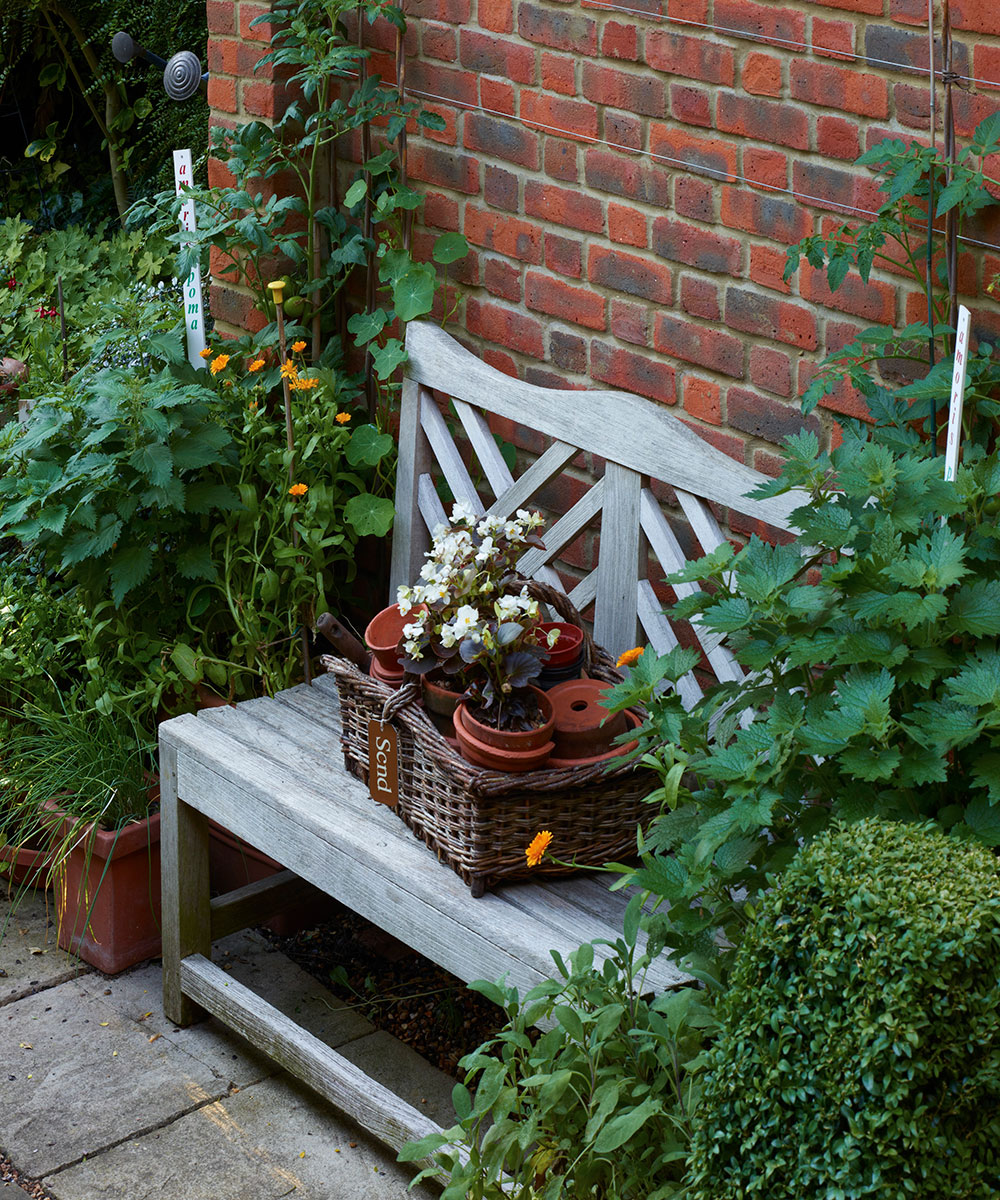
Out of this came her latest three-dimensional works of paper abstract reliefs, with their raised tapestry texture and interplay of light and shade. She enjoyed the untamed allotment edges, ‘about the only place you can be sure to see wild flowers these days’, and encouraged self-seeding plants such as herb robert and enchanter’s nightshade, their itinerant nature holding the garden together.
Seegarden shade –to make outdoor seating a pleasure to use in the summer
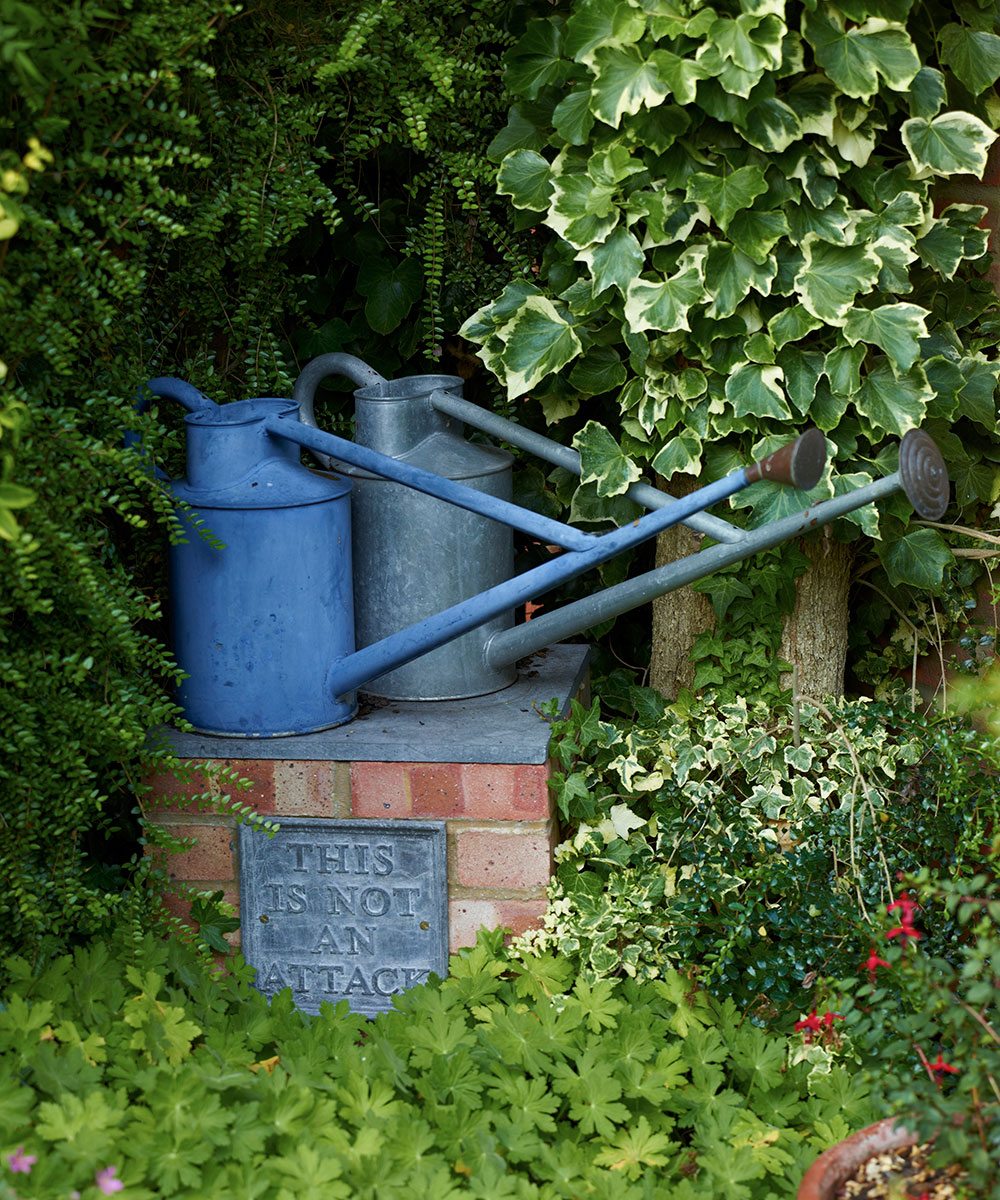
There is a vertically planted wall with the words ‘the allotment holder’, and along the top of the neat wooden shed is a fitting quote from the final chapter of Voltaire’s Candide, ‘Il faut cultiver notre jardin’, meaning that, after everything, the best thing we can do is cultivate our garden.
GARDEN GUIDE
Orientation – The garden is west facing, long and very narrow, intersected by a winding path linking the house to an artist’s studio.
Soil type – The soil was light, sandy and poor but has been regularly improved by manure and mulch, with plants being given a liquid feed throughout the growing season.
Special features – An artist’s small, town garden with around 40 works of art created over three decades.

Jennifer is the Digital Editor at Homes & Gardens, bringing years of interiors experience across the US and UK. She has worked with leading publications, blending expertise in PR, marketing, social media, commercial strategy, and e-commerce. Jennifer has covered every corner of the home – curating projects from top interior designers, sourcing celebrity properties, reviewing appliances, and delivering timely news. Now, she channels her digital skills into shaping the world’s leading interiors website.